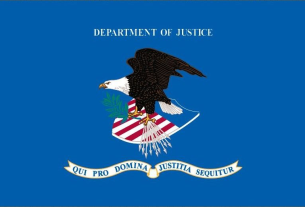On July 25, 2024, the European Union’s Corporate Sustainability Due Diligence Directive (CS3D) came into force, marking a watershed moment for global corporate accountability. For the first time, companies operating in the EU are legally obligated to identify, prevent, and mitigate human rights abuses and environmental damage—not just in their own operations, but across their entire supply chains.
While hailed as a historic breakthrough, the Directive’s success will hinge on its implementation, the independence of its oversight mechanisms, and its ability to resist corporate influence.
⚖️ What Is CS3D?
The CS3D legally requires large companies to carry out mandatory human rights and environmental due diligence across their value chains. The regulation targets EU-based companies with over 1,000 employees and €450 million in turnover, a narrowed scope from earlier proposals, but still significant in reach. Some smaller businesses may still be affected indirectly as supply chain partners.
Companies will need to:
- Assess risk and identify actual or potential adverse impacts
- Implement preventive and corrective measures
- Establish notification systems and grievance mechanisms
- Monitor and report on their due diligence efforts
- Provide evidence of compliance when challenged
Each EU Member State now has two years to transpose the Directive into national law. Companies must comply between 2027 and 2029, depending on their size and structure.
🌍 Why It Matters
The CS3D builds on years of voluntary frameworks such as:
- The UN Guiding Principles on Business and Human Rights
- The OECD Guidelines for Multinational Enterprises
- The OECD Due Diligence Guidance for Responsible Business Conduct
Unlike its predecessors, however, CS3D introduces legally binding obligations, turning what was once ethical guidance into enforceable law. It aims to close longstanding gaps that have allowed corporate impunity for environmental destruction and human rights violations—particularly in developing nations where state enforcement is weak.
“This is not just a regulatory shift—it’s a paradigm shift in how businesses are expected to behave globally,” says a policy brief from the European Coalition for Corporate Justice (ECCJ).
🚧 Challenges Ahead
Despite its promise, the CS3D faces multiple hurdles:
- Regulatory Fragmentation: Several EU Member States already have national due diligence laws (e.g., France’s Duty of Vigilance Law and Germany’s Supply Chain Act). Harmonizing these frameworks without creating legal uncertainty or bureaucratic overload will be a test.
- Corporate Regulatory Capture: There are mounting concerns that corporate lobbying could water down enforcement. Independent supervisory authorities are required, but ensuring their actual independence will be critical to avoiding conflicts of interest.
- Greenwashing and “Human Rights-Washing”: With increased reporting, the risk of misleading disclosures rises. Strong non-financial auditing and third-party verification will be essential to maintain public trust.
- Resource and Capacity Gaps: Many companies lack the internal capacity, expertise, and resources to effectively map and manage complex, multilayered supply chains—especially for small and medium suppliers globally.
📢 Empowering Rightholders
The Directive introduces formal complaints procedures, giving workers, communities, and civil society the legal standing to hold companies accountable. Civil liability mechanisms are also expected to evolve, supporting litigation and access to judicial remedies.
Legal scholars and NGOs see the CS3D as a catalyst for expanding climate and human rights litigation strategies. According to the Business and Human Rights Resource Centre, strategic litigation has already emerged as a key pressure point for enforcing accountability.
🔍 What Comes Next?
With UN-level negotiations underway for a global legally binding treaty on business and human rights, the CS3D could serve as a template for international standards. But for it to succeed, the EU must ensure that enforcement is credible, data is reliable, and corporate compliance is genuine—not performative.
✅ Summary: Will CS3D Strengthen Global Corporate Accountability?
✔ Yes, if…
- Oversight bodies remain independent
- States enforce the law consistently and transparently
- Companies invest in governance reforms and capacity building
✘ No, if…
- Regulatory capture undermines enforcement
- Greenwashing practices go unchecked
- Implementation varies widely across Member States
The CS3D is a landmark directive—but its legacy will depend on the political will, institutional integrity, and active participation of governments, civil society, and businesses alike.
References:
- European Commission. Corporate Sustainability Due Diligence Proposal.
- ECCJ (2024). Analysis: What the Final CS3D Means for Business and Rights Holders.
- Business and Human Rights Resource Centre. Tracking Human Rights Litigation and Corporate Accountability.
- OECD. Due Diligence Guidance for Responsible Business Conduct.
Corporate governance framework on Wikimedia by Asmi-corporatereporting.com



